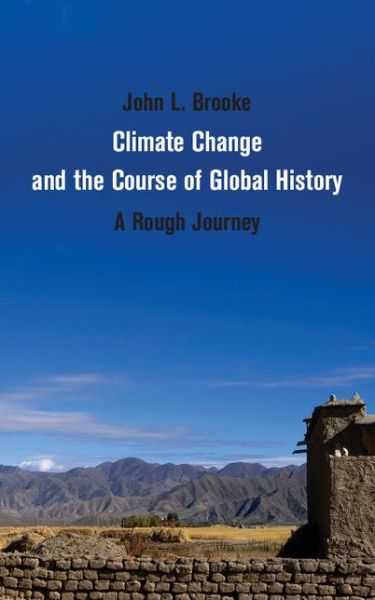
Climate Change and the Course of Global History
Climate Change and the Course of Global History: A Rough Journey presents the first global study by a historian to fully integrate the earth-system approach of the new climate science with the material history
of humanity. Part I argues that geological, environmental, and climatic history explain the pattern and pace of biological and human evolu-
tion. Part II explores the environmental circumstances of the rise of agriculture and the state in the Early and Mid-Holocene, and pres-ents an analysis of human health from the Paleolithic through the rise
of the state, including the Neolithic Demographic Transition. Part III introduces the problem of economic growth and examines the human condition in the Late Holocene from the Bronze Age through the Black Death, assessing the relationships among human technologies, climatic
change, and epidemic disease. Part IV explores the move to modernity, stressing the emerging role of human economic and energy systems as earth-system agents in the Anthropocene. Supported by climatic, demo-graphic, and economic data with forty-nine figures and tables custom made for this book, Climate Change and the Course of Global History provides a path-breaking model for historians of the environment, the world, and science, among many others.
John L. Brooke is Humanities Distinguished Professor of History at Ohio State University, where he also directs the Center for Historical Research. His books include Columbia Rising: Civil Life on the Upper Hudson from the Revolution to the Age of Jackson (2010), which won the Best Book Prize from the Society of the Historians of the Early American Republic; The Heart of the Commonwealth: Society and Political Culture in Worcester County Massachusetts, 1713–1861 (Cambridge, 1994), which won the Merle Curti Award for Intellectual History from the Organization of American Historians; and The Refiner’s Fire: The Making of Mormon Cosmology, 1644– 1844 (Cambridge, 1989), which won the Bancroft Prize for American History. He has held fellowships from the Guggenheim Foundation, the National Endowment for the Humanities, the American Council of Learned Societies, the American Antiquarian Society, and the Harvard Charles Warren Center.
 Брук, Джон Л. (John L. Brooke)
Брук, Джон Л. (John L. Brooke)